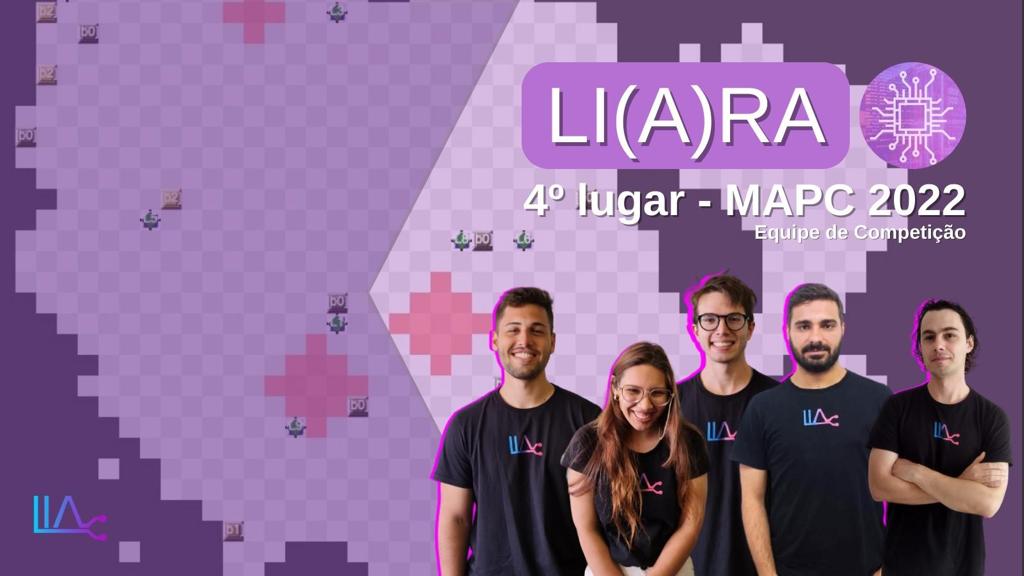The rise of distributed intelligent systems implementations, such as smart homes, has been highlighting the importance of the multi-agent systems paradigm for succeeding in the execution of multiple tasks in complex programming environments. In 2022, an academic group named LI(A)RA formed a team composed of three undergraduate students — Marcelo, Michele, and Ricardo — from the Computer Engineering program at the Federal University of Santa Catarina (UFSC). They were under the supervision of Professor Alison R. Panisson and PhD Giovani P. Farias. The supervisors had approximately 10 years of experience in multi-agent systems programming, while the students had about 1 year of experience. The students had been learning about multi-agent systems in undergraduate courses and through the LI(A)RA project, which focuses on teaching multi-agent systems technology through research, theoretical synthesis, and specific programming tools.
In 2022, the LI(A)RA team became pioneers within their group by participating in the Multi-Agent Programming Contest (MAPC). MAPC aims to provide challenging scenarios for researchers to explore agent-oriented programming languages, platforms, and methodologies for developing multi-agent systems. The MAPC 2022 competition introduced the Agents Assemble III scenario, which included a normative system, the concept of agent roles, and complex tasks that required agents to exhibit attitudes of collaboration and coordination to score points.
The LI(A)RA team's implementation was based on the Jason platform, which extends the AgentSpeak(L) programming language. This language draws inspiration from the Beliefs-Desires-Intentions (BDI) architecture and is part of the JaCaMo Framework, enabling the creation of complex multi-agent systems. The code has about 1100 lines and demanded about 80 hours for Alison to program and 40 hours for the team to discuss strategies and test the system.
The team's participation in MAPC served as an opportunity to apply their knowledge and skills in multi-agent systems to a real-world problem. Despite facing challenges related to time constraints and testing, they were able to develop a decentralized multi-agent system that adapted its behavior dynamically based on environmental exploration and interactions with other agents. They also noted some metrics about their team's implementation compared to others. Their team had more developers but spent fewer hours on development compared to most teams. Despite having a shorter implementation, it's challenging to compare lines of code across different programming languages. LI(A)RA was the only team using the Jason platform.
The experience gained from MAPC not only contributed to their understanding of multi-agent technologies but also highlighted the potential of these systems in addressing complex programming tasks. It emphasized the need for early implementation planning, careful study of the scenario, and the benefits of using declarative programming languages like Jason.
